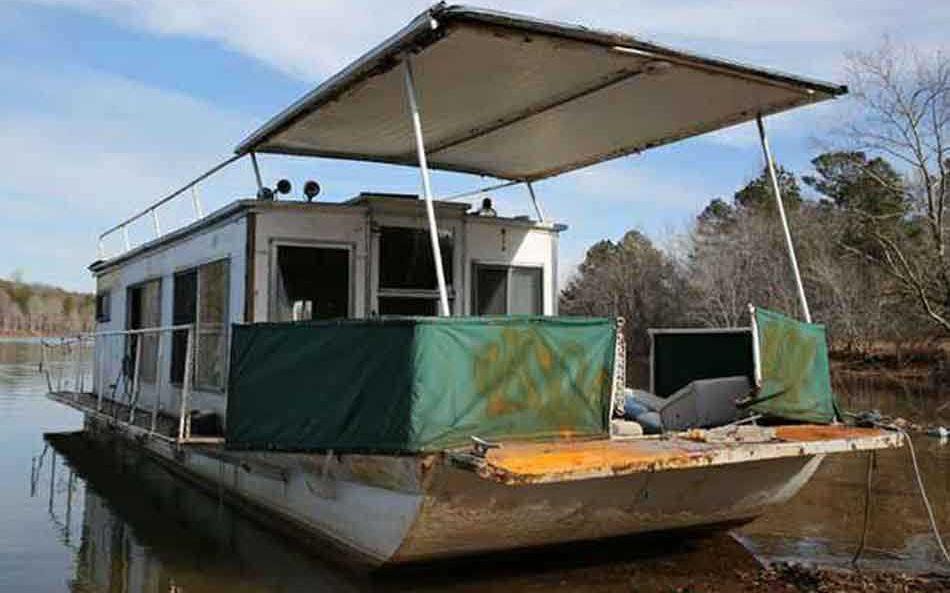GAINESVILLE — A bill requiring boat titles never left the Georgia House in the recently ended legislative session, but the issue won’t drop off the radar for lake advocates.
“Absolutely, we will revisit this issue,” said Joanna Cloud, executive director for the Gainesville-based Lake Lanier Association and a Forsyth County resident.
She said she plans to follow up with state Rep. Carl Rogers, R-Gainesville, one of the bill’s co-sponsors, and Gainesville Marina’s Philip Burton of the Marine Trade Association “to discuss what we need to do to push it forward next session.”
Rogers said the Department of Natural Resources, tax commissioners statewide “and probably the Department of Revenue needed to work on [the bill] … in the interim to make sure they have everything in place.
“It’s a long bill and takes a lot of setting up, processing systems and such to make sure everybody is clear and ready to go.”
Plus, “this year, we were all focused on” several large bills, such as transportation funding and medical marijuana, Rogers said.
With the boats bill, a particular concern for the lake association is abandoned vessels and how to identify owners, something Cloud is hoping House Bill 356 will remedy.
“Georgia is one of few states in the U.S. that doesn’t title vessels,” the organization said on its website in an appeal to members. “As a result, tracking ownership over the course of time, especially as a vessel changes owners, can be difficult.”
Under the current system, new boat owners pay a one-time sales tax at the time of purchase.
“In addition to that tax, I also pay annually an ad valorem tax on that personal property,” Cloud said. “It depends on the value of my boat and the county where the boat is located. But for me, it works out to about $150 per year.”
Cloud said she pays a registration fee to the DNR once every three years to register her boat.
Under the bill, new boat owners would pay a one-time 4 percent sales tax at the time of purchase but no longer pay an annual ad valorem tax. Owners of existing boats would continue to pay ad valorem.
In both cases, boat owners would have to register their boat annually with their county tax commissioner’s office for the boat title — a $20 fee.
“This is not a new tax,” Cloud said “This is restructuring our current tax and our DNR registration system. The current DNR system is antiquated and not effective at tracking ownership.”
Burton, who earlier this year pulled a 16-foot boat from Lake Lanier without a current registration sticker, has said, “We need some kind of database to find owners or at least keep warm on their trail.”
“This is a good bill,” he said. “It’s good for boat owners, lenders and dealers.”
Georgia ranks high in the nation in boat theft, partially “due to the non-title issue,” according to the Lake Lanier Association.
The group further states: “Some lenders are less willing to finance boat sales in a non-title state. That leaves fewer lenders willing to finance, which translates into less competition in this market and higher interest rates charged on boat loans to consumers.”
Hall County Tax Commissioner Darla Eden has said she believes lawmakers want a “one-stop shop” for boat owners to register and title watercraft where they register and title motor vehicles — their county of residence.
“To accomplish this home convenience for the taxpayer, counties like Hall will lose traditional tax revenues to boat owners that live in other counties,” she said.
However, “We are working with the legislator/sponsors and related parties to help shape the bill into something that could be workable if we are handed the job of titling and registering boats,” Eden said.
Rogers said he sees the issue regaining steam next session.
“Obviously, titles are important,” he said, echoing Cloud’s concerns about abandoned vessels. “And I’ve been told there was a [boat)] theft ring coming out of Florida, so when you don’t have a paper trail, there’s no way to track [thefts].”

